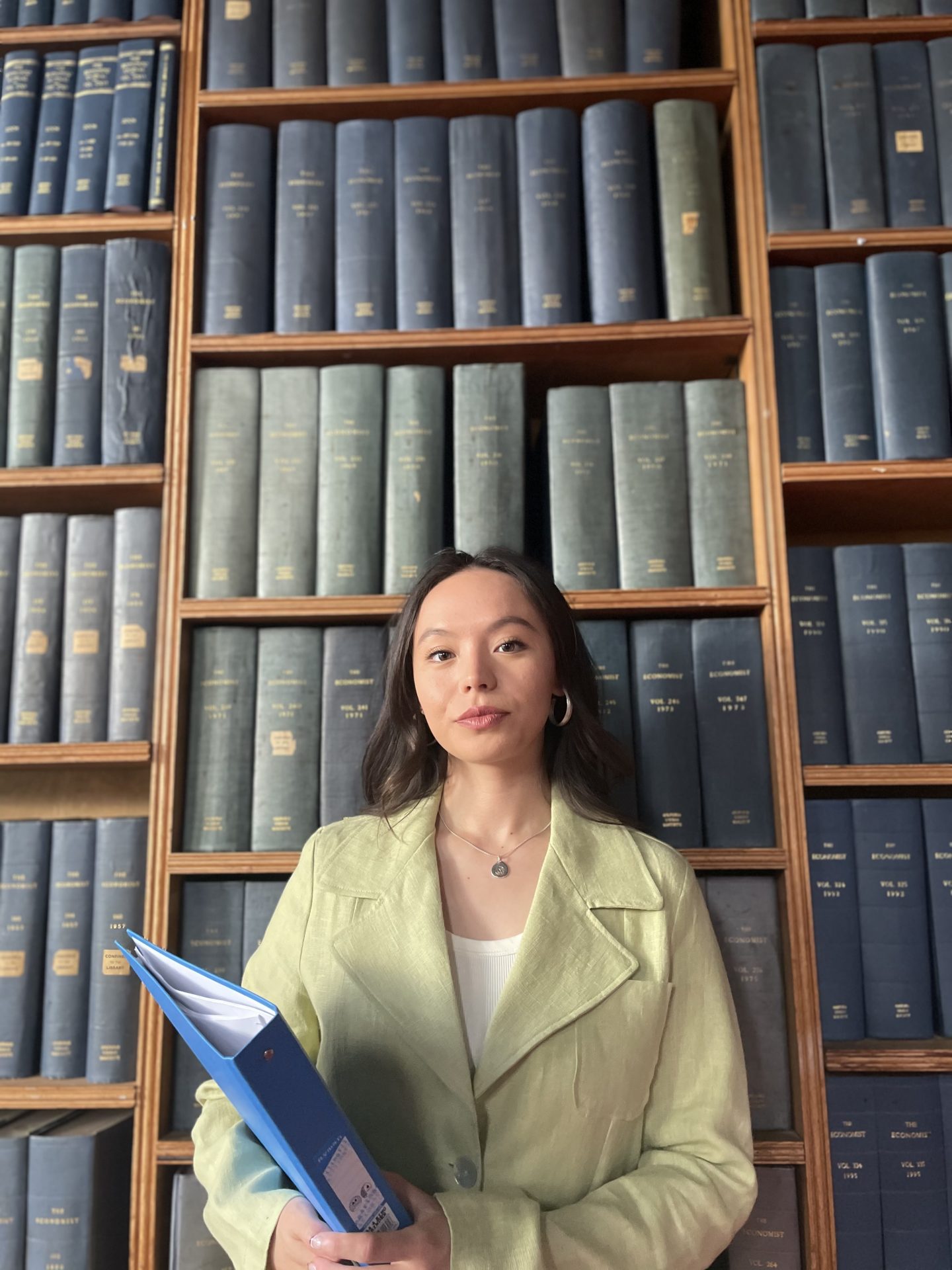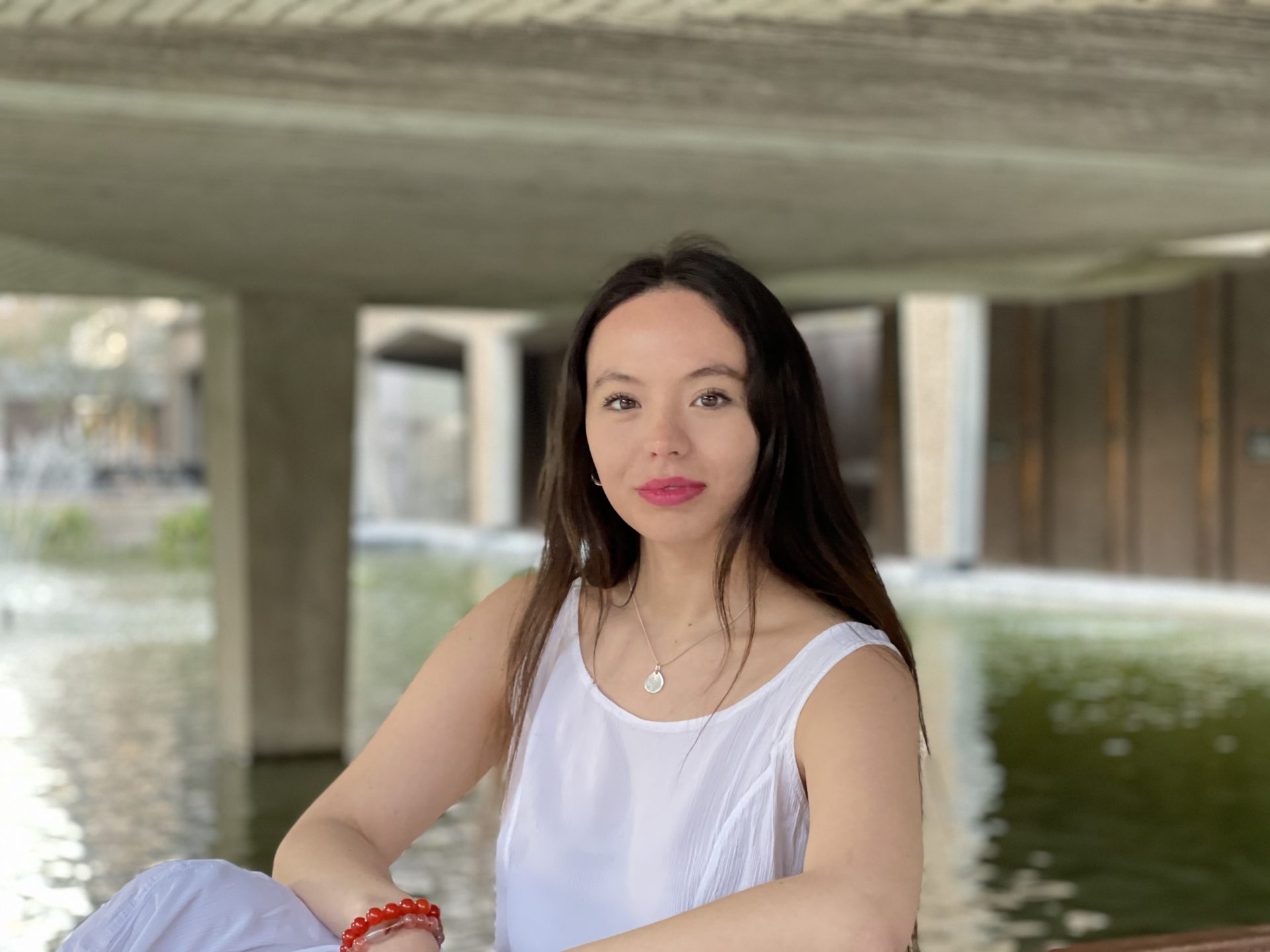Written by Leah Sinclair
The founder of Everyone’s Invited talks to Stylist’s Leah Sinclair about tackling rape culture, the impact of online pornography and just what it means to be an activist.
Content note: this article contains references to rape and sexual assault that readers may find upsetting.
At the time of writing this article, there are 50,046 submissions on Everyone’s Invited – an anonymous, online platform for survivors to share their stories of sexual violence, coercion and abuse that Soma Sara, a 23-year-old activist, founded in 2020.
The website is filled with harrowing accounts that are hard to read, and yet you just can’t turn away from them. The stories are both frightening and saddening, but to most women and girls, they’re also relatable.
Recent entries include an anonymous 14-year-old girl having to listen to a boy proclaim that he “shagged her ” at school when, in reality, he forcibly took her virginity. A pregnant university student was violently harmed during sex with her boyfriend, who then attempted to coerce her into an abortion.A 16-year-old was raped in her boyfriend’s bedroom and told, ‘There, that was nice wasn’t it?’ at the end of the traumatic ordeal. The list goes on – it’s over 50,000 devastating experiences long.
“Reading the stories can be overwhelming,” says Sara. “In one sense, it’s extraordinary to see so many people feeling empowered to share stories that are so vulnerable and getting that sense of release through active sharing, but at the same time, it’s reflective of how invasive and entrenched these problems are and how widespread sexual violence is normalised.”
Sara speaks to me shortly after the publication of her debut book, Everyone’s Invited, a collection of essays that touch on a range of issues, from sexual education in schools to toxic masculinity, and comes over two years after the 23-year-old launched Everyone’s Invited – an anti-rape movement organisation that is tackling rape culture and sexual bullying and inspiring women and girls to share their own stories.
“When you destigmatise something, people feel more comfortable or empowered to talk about these things,” she says.
“We saw this with me sharing my testimony – and others also felt empowered to share because they realised they were not alone in their experiences. This is a testimony to the power of stories, language and how important it is for people to be able to see that.”
Sara was raised by her single father along with her two sisters, where discussions around sex, relationships and the importance of topics including consent and coercion didn’t come up often.
“There weren’t that many conversations [at home]. I think, typically, that generation of parents were quite unwilling to talk about it. It was almost uncomfortable, awkward and limited – and school was as well,” she says. “There was definitely a lack of real open and honest conversations in this area and I think that they didn’t really have the knowledge and understanding.”
This lack of conversation served as the building blocks toward how sex and consent are often perceived today – especially when porn becomes the educator that fills those gaps.
“If you don’t have adults [to explain things to you] then it’s the internet that’s likely giving you an idea what sex is meant to be like. Learning from pornography is what ends up becoming normalised among your peers.”
Sara says conversations with her peers and fellow activists further prove the impact porn can have on relationships and sex, from body image and consent to the lack of importance placed on female pleasure that is often portrayed in porn.
“There’s so much that people learn through porn and then it’s reflected in sex,” she says.

“It can affect boys and the way they’re having sex. Some don’t feel that they need to get consent for other sexual acts [because of what they’ve seen in porn]. There are also other ways it impacts relationships, too, from the unrealistic portrayal of what women’s bodies look like to ignoring the awkwardness that can come with sex. It all plays a role.”
Sara says her generation is profoundly impacted by what she calls the “sexual scripts displayed in porn” and the impact porn has on what people expect from sex and relationships as a result of frequent pornography consumption.
“It was so influential in learning about the distributions of power – what sex should be, what it looks like, the kind of roles people play in sex, and the stereotypes as well,” she says.
As a part of a generation that grew up on the internet and had to deal with everything from the pressures of social media to the harms of online pornography, these two areas greatly affected Sara while she attended school, and that was also the case for many of those around her.
“Social media was a real driver. While I had amazing friendships and was more focused on different facets of who I was rather than on what I looked like and boyfriends, image culture still persisted, and when it comes to body image, there is a lot of pressure and everything is quantified by these visual signifiers of how popular someone is and how many views or comments you got,” she recalls.
“And when it comes to rape culture, I saw a lot of that in my school years, during the holidays or out on the weekends.”
The toxicity of rape culture came to head while Sara was completing her final essay for her English literature degree at University College London, and having conversations with friends about their experiences. “I just began joining up the dots and realising how this is such a widespread problem that is embedded on every level in society.
“I think it’s always been there, but it was only then that I really began to understand how bad it was through speaking with friends who had been victims of sexual violence and how many of them experienced this in their teenage years – and nothing was challenged.”
It was in 2020 that Sara took to social media to share her own story – a move that resulted in an overwhelming response from those who’d had their own harrowing experiences and that ultimately was the spark that led to the creation of Everyone’s Invited and, subsequently, Sara’s book of the same name.

“When everything exploded, it was during that time that the idea of writing a book came about,” she says. “I really wanted to examine and interrogate rape culture and try to understand why we live in a world where rape culture and sexual violence is deeply [embedded] in our civilisation and try to find the root causes of it in an attempt to find solutions.”
In the collection of essays, Sara covers a range of subjects including social media, online pornography and toxic masculinity, while arguing that we can flip the script and start solving the problem – a process which Sara found fascinating.
“I found that the more open-minded I was in the research and the reading, the more clarity I gained. It was really challenging and triggering but also fascinating.
“There is such an incredible line of extraordinary women and activists in the past who have been championing this cause,” she shares.
“I loved reading the big greats of feminism like Simone de Beauvoir’s The Second Sex and reading works that were written like 150 years ago, and it feels so contemporary. It gave me a sense of catharsis, affirmation and healing.”
That sense of healing proved key throughout the process of writing this book and while working on Everyone’s Invited, as Sara came to learn the importance of taking care of herself.
“My most fundamental lesson in writing the book and my journey so far is that you have to prioritise your own healing. If you want to be an activist and make a change, your mental health and prioritising your time is important.”
I ask Sara about the word ‘activist’, what it meant to her in her early years and whether she identifies with all those things now that she is one. It’s a question that makes her pause, but it serves as a poignant moment of reflection on her past, present and, importantly, her bright future.
“When I was younger, I thought of an activist as someone who was brave, doing something that was groundbreaking or against the grain; standing up for something that they believed in with passion, conviction and empathy,” she says.
“I do resonate with those things now and I think a lot of my activist peers are in line with those qualities and values as well.”
The growth of Everyone’s Invited is a testament not only to the work of Sara and her team but also to the desire to tackle an issue that has persistently affected multiple generations of women. And now it’s a registered charity with 27 volunteers (and homing in on education with a focus on “finding solutions”), Sara feels optimistic about what’s to come.
“I’m finally able to enjoy the process of having finished something, having it out in the world and letting go now that the book’s finished,” she says. “It was scary and I was quite anxious to do that, but right now, I feel amazing.”
Everyone’s Invited by Soma Sara is published by Gallery Books and is available to buy now.
If you’ve been affected by sexual assault, you can contact The Survivors Trust on their website here.
Images: Soma Sara
Source: Read Full Article
